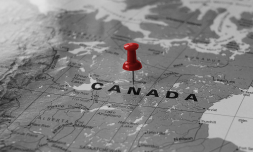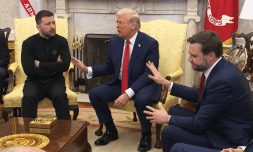The Liberal Party has staged an unexpected comeback. But with Trump back in the White House, Canada’s new prime minister may need more than economic credentials to hold the line.
By any conventional political metric, Mark Carney should not be Prime Minister of Canada. He is a latecomer to party politics, having only assumed leadership of the Liberal Party two months ago.
He has never held elected office. His resume reads less like a politician’s than a Davos name badge: former Governor of the Bank of Canada, then the Bank of England, and global finance whisperer to the world’s richest men. But here he is, having just pulled off an improbable fourth mandate against the odds.
The results are still trickling in, but the tone of Carney’s win is already clear. This was a vote not just for competence, but for a particular brand of resistance. Just six months ago, Canada’s Liberal party was in crisis, with a dozen backbench Liberal MPs calling for then Prime Minister Justin Trudeau to step down last October.
Trudeau’s refusal to resign left the future of the party in jeopardy, with no clear heir to its leadership and a nosedive in public popularity. Polls set a Conservative victory in the upcoming election at 99%.
But in the months since, Carney has emerged as an unlikely hero for Canada’s liberals. This is thanks in large part to the aggressions of Donald Trump, who has made repeated threats to Canada during his first 100 days in office.
Carney’s confident and relentless pushback against Trump’s bullying made him a firm favourite amongst Canadian voters.
Following his victory this week, Trump congratulated Carney, with reports stating that both leaders had ‘agreed on the importance of Canada and the United States working together – as independent, sovereign nations – for their mutual benefit.’
Canada must now defend its sovereignty not just from the usual tides of globalization, but from the gravitational pull of a hostile neighbour. And Carney has, crucially, failed to win a majority. The Liberals will still need to rely on other party’s support to pass any legislation, and face possible defeat in a vote of confidence within the chamber.
For Canadians, the stakes of this election felt more pressing than usual. The result sought to answer the question of whether Canada continues to stand as a distinct liberal democracy or folds, ever so subtly, into the shadow of Trump’s America. Canada has become ‘the front line of Trump’s economic warfare,’ with trade threats, tariff changes, and a rhetoric of annexation.




















